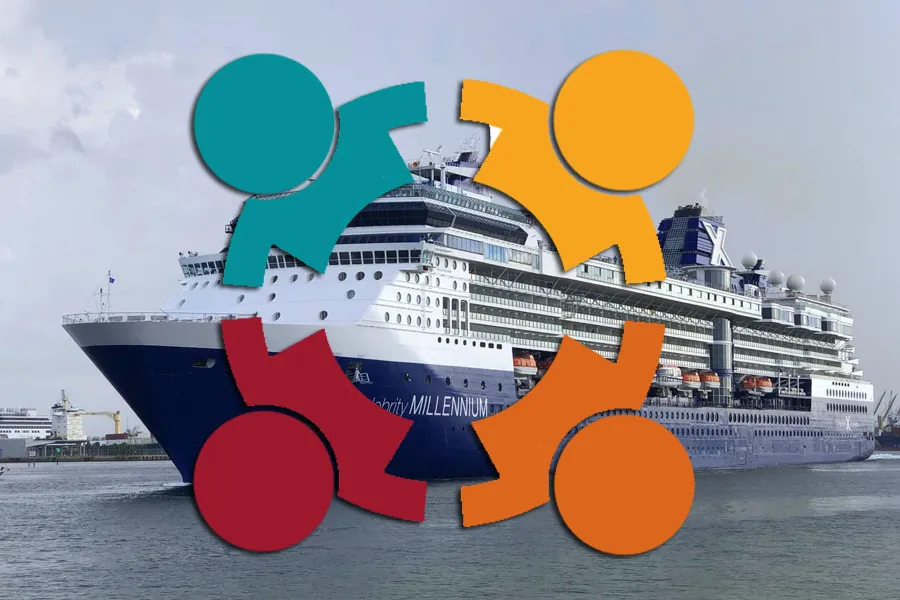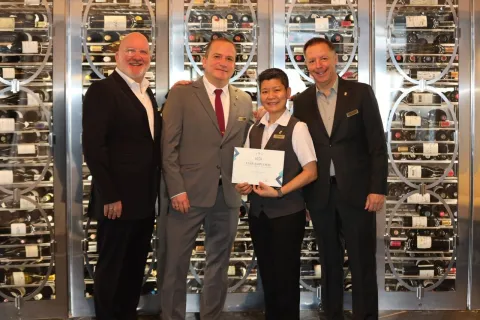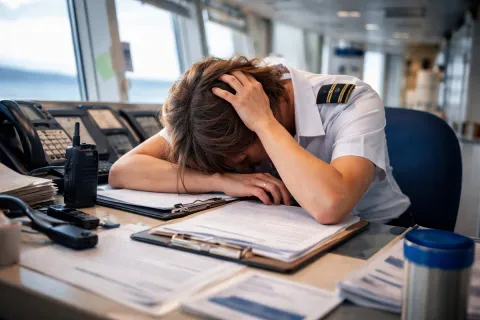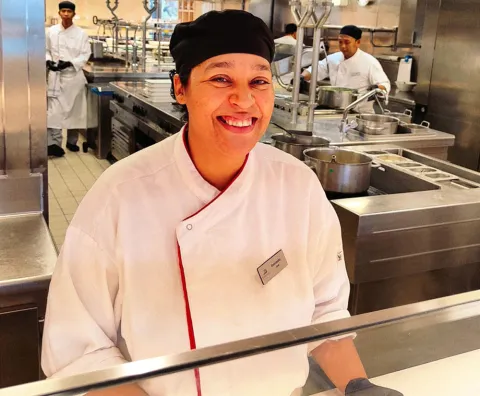
By: Mathieu Burnel
Cruising is hiring! Emergency hiring actually. All manning actors have repeated it from months: searching for crew. Searching, searching again, sometimes for a while… That’s not a surprise: while many companies indicated to maintain a warm lay-up when the pandemic began, the time extension made many of them to renounce. Added to the bankrupts and scrapped vessels, most of the ships spent the two last years with some dozen of people onboard… Cruising included 1,9 millions of workers before pandemic (CLIA 2019), cruising needs 1,9 millions of workers now!
Some were surprised: why us, crew, did not come back onboard ASAP? Imagine a kind of orchestra: an interlude comes, musicians are taking a break, on time they will be ready to start again. Seen from our side however, the answer is evident: long-term uncertainty prevented us from waiting. Imagine: no time has been fixed for restart, the interlude was expected for minutes but it is now hours, days, months! After a while, everyone works in finding a back-up. Viewers shall be gone too anyway.
If the conductor comes two years later to carry on, most of the musicians found a new occupation and they do not come back. He is joined by some irreducible ones, both the former job’s lovers who come as soon as they heard it started again and the ones who have found nothing during these years. They are not in a sufficient number to play the whole piece again… That is what we see onboard indeed: ships still stopped as crew are missing, closed services like bars and restaurants while urgently searching for manning. Despite this emergency, cruising is still extremely demanding to its future professionals – hopefully!
Hopefully, about knowledge and posture! Then… some other points could be fixed again. Some people have dreamed to work onboard a cruise ship for years, however they cannot – due to a malformation, to a minor disability, to a medical specificity… some even used to work onboard, until they got such a specificity which prevents them from coming back at sea. It is quite ironic indeed: while cruise ships belong to the safest and best-secured parts of the world, while almost all of them are able to host disable passengers, we forbid disabled people to integrate the crew. Pay for a cruise… but don’t work on it.
Medical restrictions come from a certain logic indeed: the International Maritime Organisation rules define the sea medical certification in order to guarantee a crew member to be able to act in case of an emergency. Imagine an epileptic person in charge of welcoming passengers in their muster station: if we have to abandon vessel while this person suffers from a crisis, you have to replace him.
Here is the key however: the same IMO rules define a crew member as someone involved in the ship safety management. That’s why we speak about minimum safe manning for instance: minimum number and organisation of people who have to stay onboard, whatever the ship’s operating conditions.
Then, any worker onboard a cruise ship is not forced to be part of the crew. As soon as he is not part of the ship’s emergency plan, a seaman is exempted from the medical visit. Not such a problem for cruising: hiring disabled people only means to rearrange the emergency plans, i.e. by resharing some duties that one person would not be able to realize. Your shore excursion staff is medically unable? Give the charge of muster station’s count to another person. Millions of people dream to reach our vessels, thousands of them are much too competent for you to refuse them… Such a shame to send away the talents you are searching for.
Crew Insights
Articles and experiences shared by crew members working on cruise ship. Find out more about ship life at sea together with tips and advices for first time crew members and cruise oldtimers.












